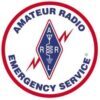KNW-139
GUIDELINES AND “GENERIC” PLAN FOR
WIDESPREAD AND/OR EXTENDED POWER
OUTAGES AND TELEPHONE SYSTEM FAILURES
by D. W. Thorne, K6SOJ
BEFORE THE POWER OUTAGE:
- MAINTAIN your radios, accessories, lighting, and other gear in a “state of readiness”. Your Go-Kits should already be in your vehicle and you should have a list of things you need to grab handy. Keep your batteries charged, your generator serviced and enough fresh fuel safely stored to keep it running at least 24 hours. Always keep the fuel tank in your vehicle(s) at least 1/2 full. When the power is out…service stations cannot pump fuel. Keep a manual fuel siphon with your generator so you can get fuel from your vehicle if necessary.
- PARTICIPATE in daily and weekly nets, drills, and training. Get to know your EC, AECs and other members of your ARES team. Familiarize yourself with your local and regional emergency plans.
- CULTIVATE good public relations on a daily basis. Let your friends, neighbors and local community leaders know what amateur radio is and what it is capable (and not capable) of doing.
DURING A POWER OUTAGE AND/OR TELEPHONE SYSTEM FAILURE:
- CHECK ON your family and neighbors. Especially any elderly, disabled or infirm persons you know. If assistance is needed summon help as appropriate.
- Activate your Family Emergency Plan. You must take care of them before you can concentrate on your EMCOMM duties.
- ACTIVATE your station by connecting to your auxiliary power source. Monitor designated local and section EMCOMM frequencies. Keep an accurate log of pertinent information and traffic.
- CONSERVE power and help keep the frequencies clear by not transmitting unless you have traffic or useful information.
- AS SOON AS a net has been activated, check in when your area is called. Advise the NCS of your availability for assignment(s) and ability to travel if necessary.
- YOU MAY BE asked to stay at home and serve as a relief NCS or a relay station. Both fixed and mobile ARES stations with both UHF, VHF and HF are of special value.
- IF YOU GO MOBILE, travel self-contained. Your go-kits and checklists will facilitate quick responses. Appropriate clothing, food and drink, First Aid Kit, Tool Kit, a good flashlight or two (headlights are better) plus extra batteries are essential…as is a clipboard, notepad, forms, pens and pencils and local maps. That’s only a partial list so please review the go-kits training module. Keep an adequate supply of blank RADIOGRAMS ready.
- RESPOND as directed by your NCS. Be ready to go to the nearest location where people congregate during an emergency and report your arrival to the NCS. This may be a local fire station, community hall, school, church, general store or even an intersection. When surveying an affected area, be alert for people who may have an immediate need for communications or other special needs. Obey all laws! Stay out of the way of emergency vehicles. Monitor the 147.000 repeater and/or your assigned area repeater. Notify the NCS of any location changes.
- Set up a cross-band repeater if possible so you can move freely while staying in touch with your assigned net.
- IDENTIFY yourself a a radio operator from an emergency communications unit to whoever is in charge at the location when you arrive. Wear your ARES cap, ID badge, reflective vest or jacket. On vehicles, the magnetic ARES signs are nice or you can make placards and place them on your dashboard, side windows or sun visor. Remain as visible and available as you can.
- INTRODUCE yourself to local officials. Briefly tell them who you are, what you can do, where you will be located and that they may refer persons with emergency, priority, or health and welfare messages to you. Remain polite, but DO NOT initiate or accept ROUTINE traffic until the NCS gives the “OK”. A separate repeater/net may be established to handle health and welfare messages (radiograms).
- THE NCS, at the direction of the EC or acting EC, may ask you to move to other locations (such as a hospital, clinic, utility office or city hall). Notify the person in charge at your present location that you are moving to a new location and notify NCS of your arrival at your new assignment.
- IF YOU MUST leave your post or assignment notify the NCS. Allow enough time to find a replacement if possible. That may not be possible if ordered to leave by law enforcement. Leave as instructed and notify the NCS at your earliest opportunity.
- KNOW your own limitations. Do not try to be a “marathon operator”. When your relief arrives, give him/her a brief report and go get some rest. You may be needed tomorrow.
That concludes tonight’s training. Are there any questions, comments or suggested additions to this material?
Thanks, this is (callsign) clear to net control.
Send corrections, modifications, updates or suggestions to k5prs@aol.com
